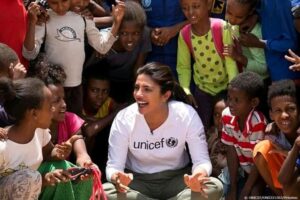By Tawanda Mukwekwezeke

Wikimedia Commons
Niger faces a complex array of challenges: food insecurity, malnutrition, disease outbreaks, education disruptions, population displacement, and natural calamities, as documented in UNICEF’s recently released report. There is an ongoing need for comprehensive interventions to help alleviate the impact of these conditions on vulnerable communities.
Malnutrition, particularly among children under five, stands as a pressing concern, with thousands grappling with Severe Acute Malnutrition (SAM) in 2023. Precision-targeted healthcare interventions are indispensable to effectively grapple with this crisis. Access to safe, clean drinking water from sustainable wells is also vital. Drinking contaminated water leads to diarrhea and other diseases, which exacerbate malnutrition.
Disease outbreaks, exemplified by diphtheria, have further strained an already burdened healthcare system, with notable caseloads reported throughout 2023. Strengthening healthcare infrastructure and implementing robust disease control measures are paramount to curtail the spread of infectious diseases. The wells we’ve funded improve village hygiene, and as a result, help limit the spread of disease. Additionally, our large-scale water projects provide water to a rural clinics focused on maternal health.
The spectre of food insecurity looms large, affecting millions, with projections pointing to a concerning rise to 3.2 million by mid-2024 (Integrated Food Security Classification, November 2023). Wells Bring Hope endeavors to provide long-term strategies to fortify food security resilience. For example, we teach drip farming and show the villagers how to use grey water to grow gardens that supplement their nutrition. With the increasing frequency of famines due to climate change, these gardens help prevent death from starvation.
The education sector grapples with widescale disruptions, characterized by numerous school closures and the plight of thousands of affected students. In communities where we’ve built wells, girls are able to attend school because they no longer have to walk hours to fetch water for their families.
Collaboration among government entities, non-governmental organizations (NGOs), and international partners like Wells Bring Hope stands as a linchpin in addressing these multifaceted challenges effectively. The mobilization of resources, implementation of targeted interventions, and cultivation of community resilience emerge as critical strategies in supporting the people of Niger through these adversities.


